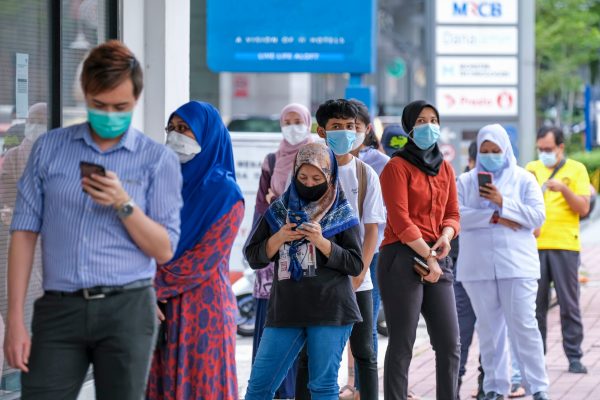Media Statement by Jaideep Singh and Lillian Wee, Researchers of Research for Social Advancement (REFSA) on 15 September 2021.
While Malaysia looks towards re-opening its economic sectors and preparing for an endemic COVID-19, we are still in the throes of unclear SOPs and piecemeal re-opening announcements, setting the economic recovery back as the public’s confidence levels remain low. This re-opening came after nearly 75% of Malaysia’s estimated adult population received full vaccination as of mid-September 2021, with the actual death rate, case numbers and ICU utilisation rate falling significantly in the Klang Valley one month after the conclusion of Operation Surge Capacity (OSC).
As part of a comprehensive strategy for recovery, REFSA’s Projek Muhibah is introducing 10 strategies to address the socio-economic challenges caused by the COVID-19 pandemic. The first strategy, released in late June, covered the need for a systematic system for mass detection and containment. The second strategy addressed how science and data-driven SOP can be taken to effectively open up sectors. The third strategy focused on targeted economic assistance to those severely impacted by the pandemic.
Our fourth installment by Dr Ong Kian Ming, Frederik Paulus and Jaideep Singh outlines different frameworks to structure the reopening of the economy in a manner which is safe, responsible, and based on science and data, in order to boost the public’s confidence. To achieve this, we looked at 8 areas of importance to address:
- Proper sequencing of the re-opening of the various economic sectors should be implemented instead of a generic phased approach. The sequencing must include dynamic and differentiated SOPs, testing requirements and operating capacity which are based on science and data.
- Release more granular data, right down to the district level and improve the categorisation of important COVID-19 related data, all of which needs to be released on a daily basis.
- Open-up based on comparative risk and science, not based on public fear mongering. The government needs to build trust and address the public’s concerns about opening up as much as possible. Additionally, in recognition of the fact that COVID-19 will be endemic like the flu, people will have to adjust their behaviour based on their own risk appetites, assuming that proper SOPs are followed at all times.
- Safely open institutions of higher learning and secondary and primary schools, as students who have to learn from home will inevitably suffer from poorer grades and perhaps poorer performance. In anticipation of this, there should be enough robustness in the SOPs such that an entire school should not have to be shut down because a handful of cases were identified.
- Allow interstate travel and open up borders for safe travel and tourism particularly to those who are fully vaccinated and when all of the states have had more than 80% of their adult population fully vaccinated. Incorporating testing as a prerequisite, government ministries can also be creative in coming up with new tourism “products” which can bring about positive spillover effects in other related industries.
- Each Ministry must submit an Economic Recovery Plan to the NSC and MKN for public viewing. This means taking the lead in proposing comprehensive and industry-specific SOPs and coming up with new proposals on how the various sectors under their respective jurisdictions can “build back better” as part of the COVID-19 economic recovery plan.
- Clear SOPs need to be issued. As it stands, the SOPs for the reopening of the economy still cause confusion such as the operating capacity of restaurants depending on % of their vaccinated workers.
- Once we open up, we need to do whatever it takes not to close down the economy again. Any lockdowns should be targeted lockdowns only and the economy should be allowed to continue with minimal disruptions.
As we open up the economy, stringent processes need to be put in place so that even if the number of cases rises again, we will not have to repeatedly close down the economy, at least not on the same scale as what took place during the previous three Movement Control Orders (MCOs). We also need to address the challenges of building public trust head on so that businesses and communities can confidently head towards a new normal as the country reopens.
READ PROJEK MUHIBAH STRATEGY 4 HERE

